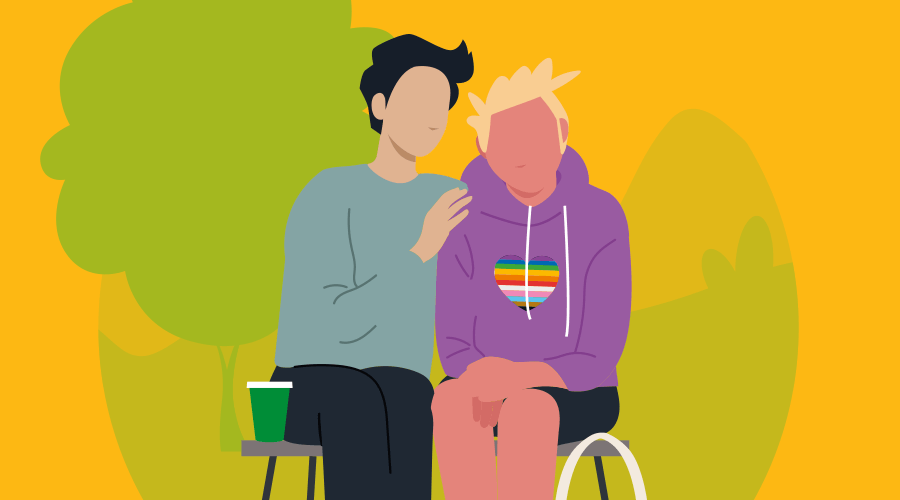LGBTQ+ and wellbeing

Most people struggle with their health and wellbeing at some point in their life. If you’re autistic and LGBTQ+, you may be more likely to have negative thoughts. In fact, belonging to any kind of minority group makes you more likely to have mental health problems. This can have an impact on how you feel about yourself.
It’s important to remember that mental health fluctuates, and there are plenty of tools and strategies to encourage mental wellbeing. You are not alone.
You can learn about looking after your health and wellbeing in our visual story format if you'd prefer.
Our Youth Network members speak openly about being autistic and LGBTQ+, and how they look after their mental health. Tilly, Joe and Aiden enjoy activities like engaging in their special interests and journaling.
Why does being autistic and LGBTQ+ affect my wellbeing?
Being autistic and LGBTQ+ does not directly cause any problems you may experience with your health and wellbeing, but your experiences may affect how you feel. These can include:
- feeling confused about who you are
- not feeling accepted for how you choose to identify because you’re autistic
- being afraid to tell people who you are
- not having a safe space to talk to other autistic LGBTQ+ people
- struggling with social spaces designed for LGBTQ+ as they are not sensory friendly
- having low self-esteem.
“It has been very difficult for me as I have a hard time figuring out my own emotions, so trying to figure out my relationship with gender and sexuality was a whole new level of complicated. I have also come across people infantilising me because of my autism and they assume I cannot be trans or gay because of it.”
How can I look after my health and wellbeing?
Embracing your true identity can have a positive impact on how you feel about yourself. There are also other things you can do to connect with like-minded people.
- Find online community groups to meet other autistic LGBTQ+ young people
- Celebrate Pride – you might choose to do this through an online event, having your own celebrations with close friends or family, or going to a Pride event if this is something you feel comfortable doing.
- Go to LGBTQ+ book shops or join a book club
- Visit an LGBTQ+ café or bar
- Learn about LGBTQ+ history and influential individuals that have created change for the movement
- Find and embrace your special interests
- Most importantly, you should celebrate being LGBTQ+ in a way that makes you feel good.
Read Poppy's blog on becoming comfortable in their own skin.
How can I be an ally to autistic LGBTQ+ people?
There are several ways you can be an ally to autistic LGBTQ+ young people.
- Use our glossary to familiarise yourself with LGBTQ+ terms
- Ask how you can support someone
- Sign online petitions
- Cut our harmful language
- Follow, share, support and amplify autistic LGBTQ+ voices
- Ask and offer pronouns when meeting new people
- Do research on the autistic LGBTQ+ community
- Confront your own prejudices
- Follow organisations like Stonewall, Pink news, and Gendered Intelligence.
Read Aiden's blog on being an ally to the autistic LGBTQ+ community. Aiden is a member of the Ambitious Youth Network.
Questions to consider
- How do I know when I’m struggling with my mental health?
- What are my favourite things to do when I’m struggling with my mental health? Eg. Colouring, petting my cat, reading, gaming.
- How can I safely connect with others who are like me?
- How can I be an ally to my autistic LGBTQ+ friends or family members?

